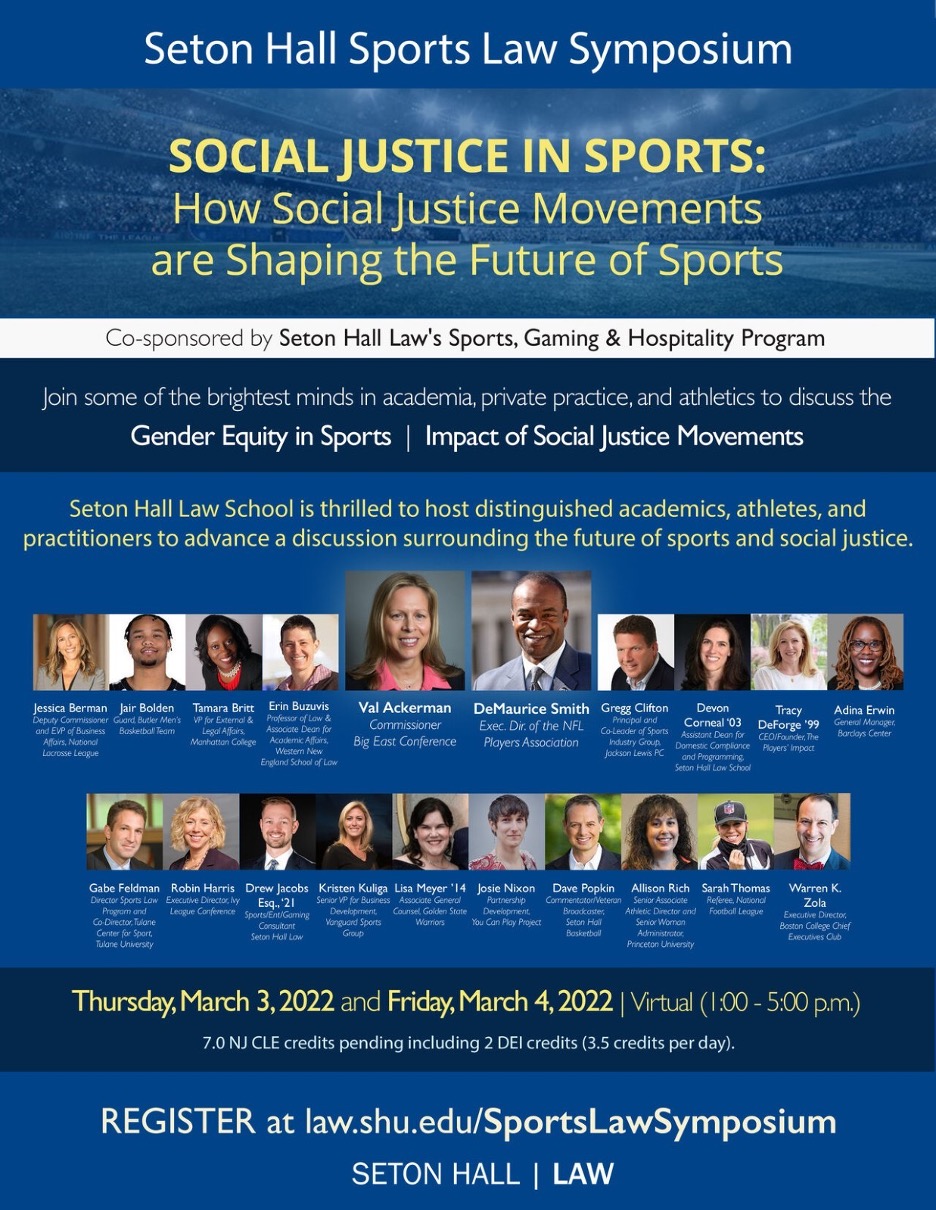
When you hear someone say “sports lawyer” do you think Jerry Maguire? You’re not alone. But sports agency isn’t the only sports-related career path for someone with a law degree. In addition to representing athletes, sports lawyers represent coaches, universities, collegiate conferences, professional athletic teams, players’ associations, and sports arenas.
They advise on employment and labor issues, licensing and sponsorship deals, and advocate for policies that improve and regulate sports both globally and domestically. They act as compliance and athletics ethics officers at universities, helping ensure those entities maintain the integrity of their teams and events. Sports lawyers navigate rapidly changing legal landscapes including sports betting and Name, Image, and Likeness (“NIL”) rights for collegiate athletes. What is common to all these roles is that they require attorneys to be nimble thinkers with core competencies in a wide array of substantive areas including contract negotiation, antitrust law, labor law, intellectual property law, and tax law.
Our alumni epitomize this unique array of skills and have gone on to exciting jobs with the Golden State Warriors, the National Football League, the National Basketball Association, the National Hockey League, university athletic departments, MetLife Stadium, sports management agencies, investment firms focused on the sporting industry, and law firms, to name just a few.
Seton Hall Law School is committed to providing students with the rigorous training necessary to excel in the sports industry. In addition to our core courses, students interested in sports law may take Sports Law and Transactions and Negotiations in Sports Law, College Sports & the Law, and E-Sports Law and we are constantly reviewing our curriculum to ensure that we are offering classes that not only give our students the best foundation in this area, but that also reflect the newest developments in the industry.
The Entertainment and Sports Law Society (“ESLS”) is an entirely student-run group, dedicated to broadening students’ exposure to sports, entertainment, gaming and hospitality law and to learn from and network with industry professionals in these fields. The ESLS Executive Board and membership oversee the annual Spring Sports Law Symposium and now monthly the Speaker Series, where prominent academics, practitioners, and athletes discuss emerging issues in sports. The ESLS has also launched a Sports, Entertainment & Gaming Law Blog designed to offer students innovative opportunities to write on timely and important topics in the GHamES space and to begin building expertise relevant areas. The ESLS also supports its members as they participate in negotiation competitions which allow students to compete against teams from other law schools in mock contract in a variety of sports settings.

"What sets Seton Hall Law apart from many other law schools is the caliber of its faculty. During my time as a student, I learned from some of the sports and entertainment industry’s heavy hitters still practicing in the industry today. Trademark and Copyright with Frank Politano were two of my favorite classes. Karl Guthrie’s Entertainment Law class was the closest thing you can get to the real entertainment world in a classroom setting. And, finally, if anyone ever asks me how I learned to ‘throw elbows in the paint’ when I negotiate, I tell them I owe it all to Judge Michael Shipp’s Advanced Negotiation Skills!"
 The Spring Sports Symposia is the highlight of the year for our Sports Law program. In 2021, the Symposium convened
top academics, practitioners, and athletes to discuss the “Future of Sports Law,”
headlined by former Governor Christopher Christie, Seton Hall Law ’87, who spoke with the Honorable Paul
Matey about the landmark sports betting case Murphy v. NCAA. Panels discussed issues including the future of stadium venues, the college athletics
revolution, the future of gaming, and the future of the agency business.
The Spring Sports Symposia is the highlight of the year for our Sports Law program. In 2021, the Symposium convened
top academics, practitioners, and athletes to discuss the “Future of Sports Law,”
headlined by former Governor Christopher Christie, Seton Hall Law ’87, who spoke with the Honorable Paul
Matey about the landmark sports betting case Murphy v. NCAA. Panels discussed issues including the future of stadium venues, the college athletics
revolution, the future of gaming, and the future of the agency business.
In 2022 the Symposium again brought together leading thinkers, leaders, and athletes to discuss “Social Justice in Sports: How Social Justice Movements Will Shape the Landscape of Sports in the Future.” Topics included transgender participation in athletics, the rise of women in traditionally male-dominated roles in the industry, NIL rights in collegiate athletics, and social justice in professional sports.
The ESLS has been instrumental in inviting prominent attorneys and industry leaders to the Law School. Panelists and presenters have included leading attorneys in the NIL space, NCAA hearing officers, entrepreneurs engaged in NFT and Blockchain technology, and collegiate coaches. These discussions take place year-round and offer students extraordinary networking opportunities as well as learning experiences.
In addition to the Sports, Entertainment & Gaming Law Blog , students may also compete to become members of Seton Hall Law Review or Legislative Journal. Should they choose to join a journal, students write comments based on an area of interest to them, including issues in sports law.